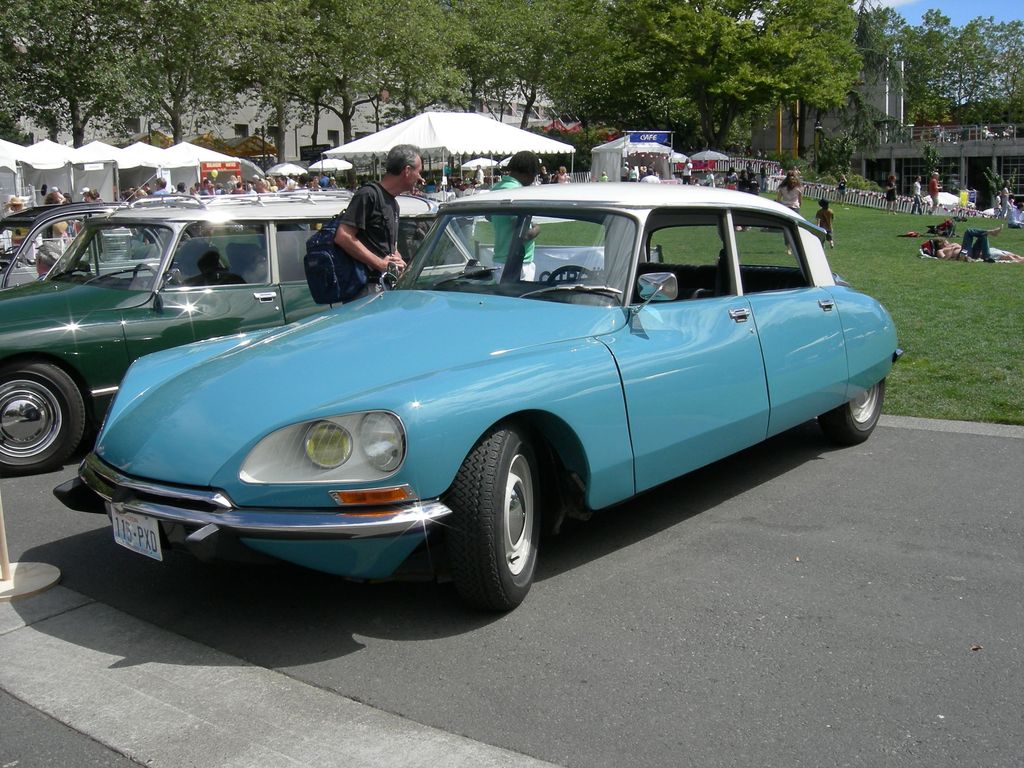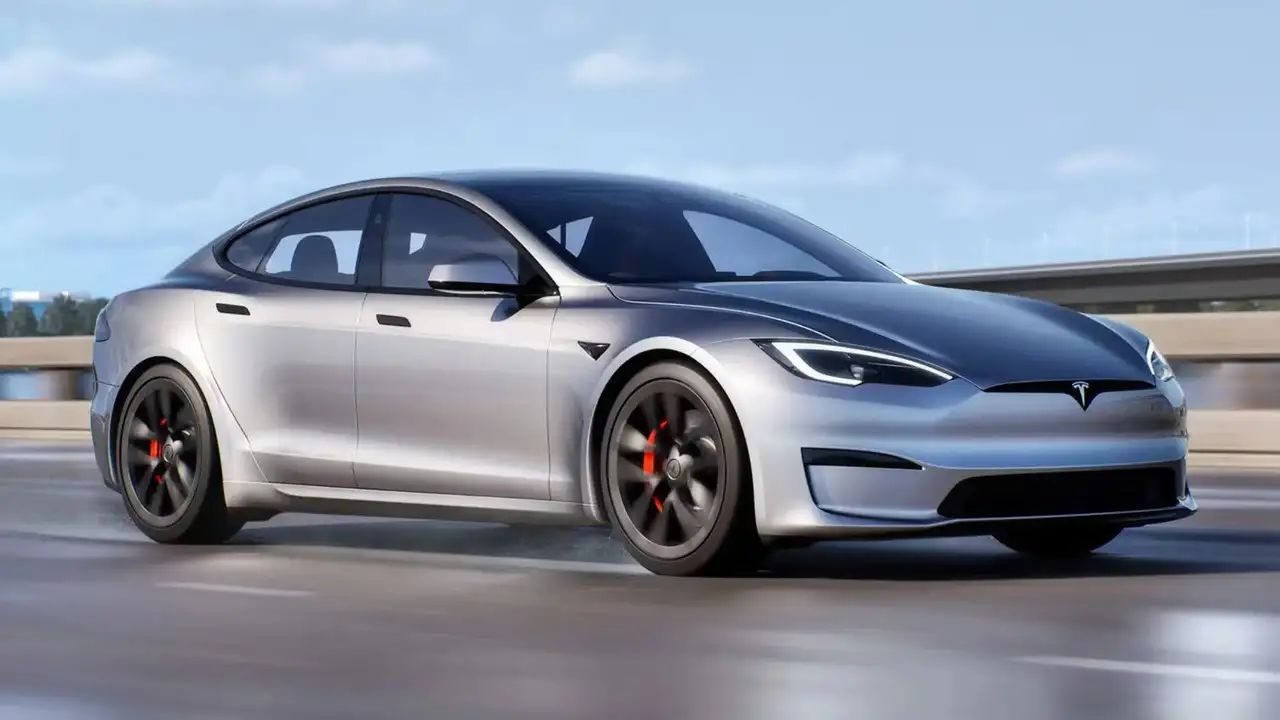
The automotive landscape is buzzing with talk of electric vehicles, and for good reason. What many consumers might not realize, however, is that this rapidly evolving market currently presents an unparalleled opportunity for savvy buyers. Forget the initial hype and perceived scarcity; the reality on dealership lots tells a different story entirely, one filled with incredible bargains. The shift towards electric mobility is undeniable, yet the path to widespread adoption has created unique financial advantages for those ready to make the switch.
Industry experts like Ivan Drury, director of insights for Edmunds, are quick to confirm this shift. He’s observed firsthand the emergence of “killer deals out there, to say the least,” signaling a buyer’s market unlike any seen before in the EV space. This sentiment is echoed across the industry, with numerous manufacturers adjusting strategies to meet fluctuating consumer demand. For consumers, this translates into a unique opportunity to acquire cutting-edge technology at highly attractive price points.
While the growth of battery-electric vehicle adoption continues, it has undeniably proceeded at a slower pace than initial industry projections. Concerns such as “range anxiety,” isolated reports of batteries exploding, and fears of rapid battery degradation have understandably “curbed the enthusiasm” for some potential buyers. Yet, for those willing to look past these anxieties, the current climate offers a unique window to acquire cutting-edge electric technology at highly attractive price points. This is especially pertinent as the federal tax credit of up to $7,500 faced an expiration on September 30, creating a sense of urgency and pushing prices down even further for a select range of vehicles. This confluence of factors makes it an ideal time to explore the electric vehicles that are truly “waiting forever for the right buyer.”

1. **Honda Prologue SUV: A Testament to Unbeatable Lease Deals**
The electric vehicle market is currently a treasure trove for consumers, and perhaps no anecdote better illustrates this than the experience of Ivan Drury’s aunt. The Edmunds director of insights was genuinely “stunned” to discover the incredibly low monthly payment his relative secured for a lease on the electric Honda Prologue SUV. Her deal, a mere $250 per month, highlights the significant incentives being offered on certain EV models right now.
This particular example underscores Drury’s firm belief that “If you’re contemplating getting an EV, just do it.” Such aggressive pricing strategies are not random; they reflect a concerted effort by automakers and dealerships to move inventory in a market that has seen slower-than-anticipated sales growth for electric vehicles. The Honda Prologue, as a relatively new entrant in the burgeoning electric SUV segment, appears to be at the forefront of these enticing offers.
For prospective EV owners, the Honda Prologue’s availability at such an accessible lease rate presents a compelling proposition. It allows individuals to experience the benefits of electric driving – including lower fuel costs and reduced emissions – without the substantial upfront investment often associated with purchasing a brand-new vehicle. This strategy is clearly designed to overcome initial buyer hesitancy and attract a broader demographic to electric mobility.
The existence of “killer deals” like these suggests that consumers hold considerable power in the current EV landscape. It’s a clear indication that automakers are willing to make substantial concessions to meet their sales targets and ensure their electric models find homes. The Honda Prologue SUV stands out as a prime example of an electric vehicle currently “waiting for the right buyer,” offering exceptional value to those who seize the opportunity.
Car Model Information: 2024 Honda Prologue Touring
Name: Honda Prologue
Manufacturer: General Motors
Production: January 2024 – present
ModelYears: 2024–present
Assembly: Ramos Arizpe, Coahuila
Class: Mid-size crossover SUV
BodyStyle: SUV
Layout: unbulleted list
Platform: GM BEV3
Related: unbulleted list
Motor: Permanent magnet synchronous AC,Induction AC
Battery: Ultium,lithium-ion
Transmission: Single-speed reduction gear
ElectricRange: unbulleted list
Abbr: on
Charging: unbulleted list
Wheelbase: 121.8 in
Length: 192.0 in
Width: 78.3 in
Height: 64.7 in
Sp: us
Powerout: Single motor: {{convert,218,hp,kW,abbr=on
Categories: 2020s cars, All-wheel-drive vehicles, All Wikipedia articles written in American English, Articles with short description, Cars introduced in 2022
Summary: The Honda Prologue is a battery electric mid-size crossover SUV jointly developed by Honda and General Motors that is marketed in North America. Announced in October 2022 with sales starting in March 2024, it is Honda’s first major electric vehicle following a number of low volume battery electric vehicles previously sold by Honda in North America, including the Honda Clarity, Honda Fit, and the experimental Honda EV Plus. Based heavily on the Chevrolet Blazer EV, the Prologue is comparable in size with the ICE-powered Passport.
Get more information about: Honda Prologue
Buying a high-performing used car >>>
Brand: Honda Model: Prologue
Price: $27,999 Mileage: 18,192 mi.

2. **Chevrolet Equinox EVs: Why They’re Considered “A Steal”**
Another compelling example of the current EV buyer’s market comes directly from Ivan Drury, who emphatically stated that “Chevrolet Equinox EVs are a steal.” This direct endorsement from a leading industry analyst speaks volumes about the value proposition these vehicles currently offer. For many, the idea of an EV being an outright “steal” might seem counterintuitive, given the historically higher price points of electric models.
However, the present market conditions, characterized by increased inventory and a keen desire from manufacturers to boost adoption rates, have created an environment where such bold claims hold true. The Chevrolet Equinox EV is positioned as an accessible electric SUV, and with Drury’s assessment, it’s clear that the pricing and incentives associated with it are making it exceptionally attractive. This vehicle is likely benefiting from a combination of federal incentives, state rebates, and aggressive dealer-level discounts.
For consumers looking to transition to an electric vehicle without breaking the bank, the Equinox EV presents itself as a prime candidate. Its status as a “steal” indicates that the total cost of ownership, factoring in purchase price, available credits, and operational savings, is highly favorable. This makes it a formidable option for individuals and families seeking practical, environmentally conscious transportation that doesn’t compromise on financial sensibility.
The emphasis on the Equinox EV as a “steal” further reinforces the theme that automakers are actively making their electric lineups more attainable. It’s not just about luxury or performance anymore; it’s about providing genuine value to a wider segment of the market. This push for affordability and attractive deals ensures that vehicles like the Chevrolet Equinox EV are readily available, waiting for informed buyers to take advantage of these significant financial benefits.
Car Model Information: 2019 Volkswagen Atlas 3.6L SE
Name: Chevrolet Equinox EV
Caption: 2025 Chevrolet Equinox EV (US)
Manufacturer: General Motors
Production: January 2024 – present
ModelYears: 2024–present
Assembly: Ramos Arizpe, Coahuila
Class: Compact crossover SUV
BodyStyle: SUV
Layout: unbulleted list
Platform: GM BEV3
Related: unbulleted list
Motor: Permanent magnet motor
Battery: Ultium,lithium-ion
Powerout: 220 or
Abbr: on
ElectricRange: 326 mi
Charging: unbulleted list
Wheelbase: 116.3 in
Length: 190.4 in
Width: 75.4 in
Height: 63.5 in
Weight: convert
Sp: us
Categories: All Wikipedia articles written in American English, Articles with short description, Cars introduced in 2022, Cars of Mexico, Chevrolet vehicles
Summary: The Chevrolet Equinox EV is a battery electric compact crossover SUV manufactured by General Motors under the Chevrolet brand since 2024.
The Equinox EV was introduced in January 2022 in a set of images at the 2022 Consumer Electronics Show (CES) and was originally planned to go on sale in the late 2023 for the 2024 model year. Chevrolet dealers began receiving deliveries of the 2024 Equinox EV in May 2024.
The Equinox EV is built on GM’s BEV3 platform, featuring a design and underpinnings different from the ICE-powered Equinox.
Equinox EV’s electronics are built on GM’s Global B (“Vehicle Intelligence Platform”) architecture.
Get more information about: Chevrolet Equinox EV
Buying a high-performing used car >>>
Brand: Chevrolet Model: Equinox EV
Price: $15,988 Mileage: 72,895 mi.
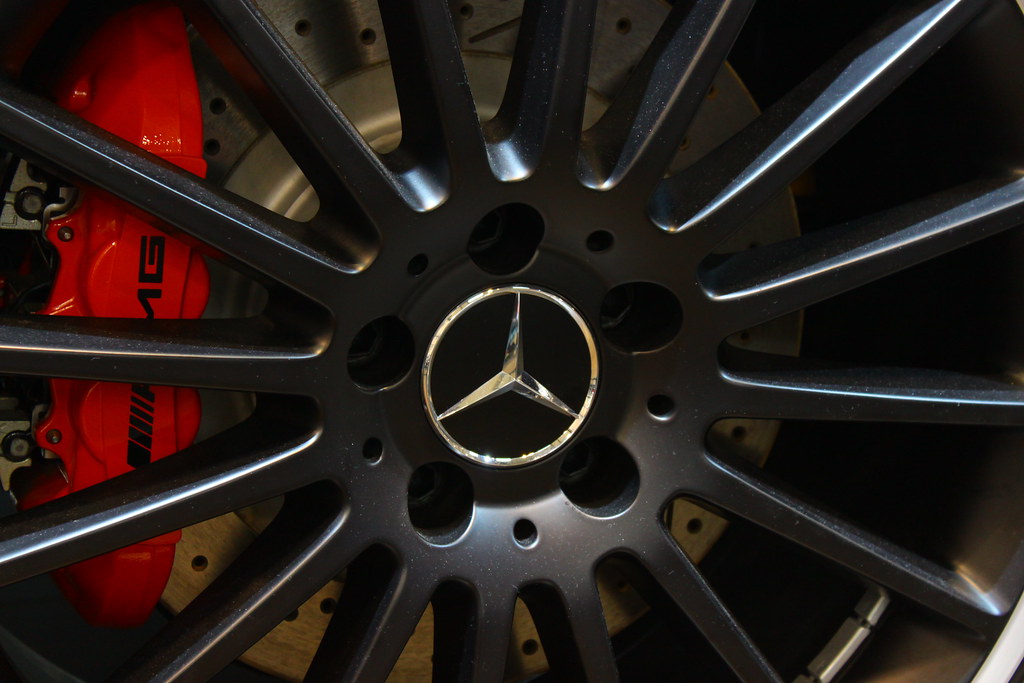
3. **Mercedes High-End EVs: Understanding the “Huge Price Adjustments”**
The attractive pricing isn’t limited to more mainstream or emerging electric models; even the luxury segment is seeing significant adjustments. Ivan Drury highlighted this trend, noting that “Mercedes has been making huge price adjustments on its high-end EVs.” This revelation is particularly significant because luxury vehicles typically maintain premium pricing, making any substantial discount a rare and noteworthy event.
These “huge price adjustments” by Mercedes-Benz signal a strategic move to stimulate demand within the high-end electric vehicle market. It suggests that even luxury EVs, despite their advanced features and brand prestige, are subject to the broader market forces of supply and demand. For discerning buyers who have long admired Mercedes’ electric offerings but found them out of reach, this could be the opportune moment to consider an acquisition.
The adjustments likely manifest in various forms, including direct price cuts, enhanced lease programs, or generous package upgrades at no additional cost. These incentives are designed to make Mercedes’ sophisticated electric sedans and SUVs more competitive against rivals and more appealing to a luxury clientele that, while affluent, is still sensitive to value and investment, especially when considering new technologies.
Such a trend also indicates that the luxury EV segment is maturing, moving beyond early adopters to a broader base of luxury consumers. Mercedes’ proactive approach ensures that their “high-end EVs” remain attractive in a market that is increasingly scrutinized for value. Therefore, for those aspiring to combine premium comfort, cutting-edge technology, and electric propulsion, these price adjustments represent an undeniable call to action for vehicles that might otherwise “wait forever” for their perfect owner.
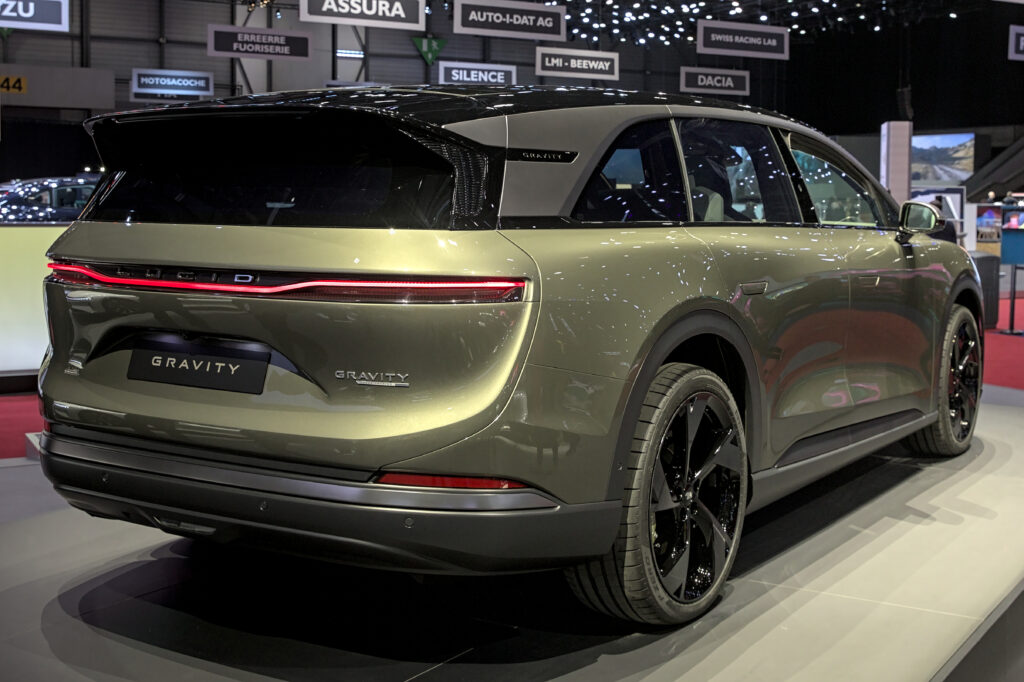
4. **Lucid Gravity SUV: The Extended $7,500 Tax Credit Offer**
In a notable move that stands out in the current EV market, Lucid, a luxury EV manufacturer, has taken proactive steps to sweeten the deal for its customers. Marc Winterhoff, interim CEO of Lucid, confirmed their decision to “continue to honor the $7,500 tax credit for owners of its new Gravity SUV until year-end.” This is particularly impactful given the broader federal tax credit expiration on September 30.
This commitment from Lucid is a clear demonstration of prioritizing customer satisfaction and ensuring competitive pricing, especially for a new and premium offering like the Gravity SUV. Winterhoff explicitly stated, “This was our decision. Some Gravitys will only ship in Q4 and we don’t want to frustrate customers.” Such a gesture makes the Lucid Gravity SUV even more appealing, effectively absorbing the potential price hike that other EVs might face after the federal deadline.
The $7,500 tax credit is a substantial incentive, and Lucid’s extension provides a unique window for buyers to secure this benefit for a luxury electric SUV that promises performance and innovation. This move positions the Gravity as a particularly attractive option for luxury EV “considerers” who are aware of the tax credit’s impact, as noted by AutoPacific’s survey indicating 79% awareness. It mitigates the “consequential” impact of the repeal by essentially internalizing the credit.
By maintaining this significant financial advantage, Lucid is actively working to ensure that the Gravity SUV does not “wait forever” for its ideal buyer. It signals confidence in their product and a dedication to facilitating its adoption, even in a market influenced by changing federal policies. For those seeking a high-performance, luxurious electric SUV, the Lucid Gravity, with its extended incentive, represents a compelling and strategically priced choice.
Car Model Information: 2026 Lucid Gravity Dream Edition
Name: Lucid Gravity
Manufacturer: Lucid Motors
Production: 2024–present
ModelYears: 2025–present
Assembly: Casa Grande, Arizona
Designer: Derek Jenkins
Class: Mid-size crossover SUV
BodyStyle: SUV
Layout: unbulleted list
Related: Lucid Air
Transmission: One-speed fixed gear
Powerout: cvt
Battery: kWh,Lithium-ion battery
ElectricRange: 450 mi
Charging: unbulleted list
Wheelbase: 3040 mm
Abbr: on
Length: 5030 mm
Width: 2000 mm
Height: 1660 mm
Weight: 2800 kg
Categories: All-wheel-drive vehicles, Articles with short description, Battery electric vehicles, Cars introduced in 2023, Commons category link from Wikidata
Summary: The Lucid Gravity is a battery electric mid-size luxury crossover SUV produced by Lucid Motors. It is the brand’s first SUV and second vehicle overall.
Get more information about: Lucid Gravity
Buying a high-performing used car >>>
Brand: Lucid Model: Gravity
Price: $134,999 Mileage: 35 mi.
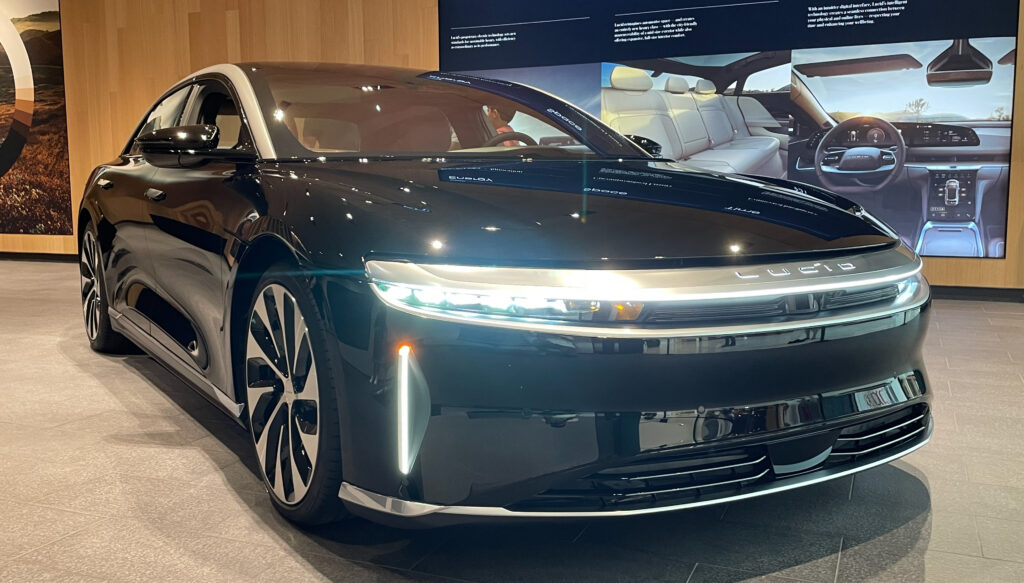
5. **Lucid Air Sedan: The Enduring Appeal of Lease Incentives**
Beyond the Gravity SUV, Lucid’s Air sedan has also been a beneficiary of the strategic financial incentives prevalent in the EV market. Marc Winterhoff, Lucid’s interim CEO, revealed that “The majority of our customers up until now have leased the cars.” He further clarified, “It is understandable – we were only eligible for the lease version of the incentives, not the cash version. And people definitely took advantage of it.”
This insight into Lucid Air sales highlights a critical aspect of current EV acquisition strategies: leasing. While direct purchases of some EVs might have seen their federal tax credit eligibility limited by the Inflation Reduction Act of 2022, leasing has emerged as a workaround. This allows consumers to effectively “walk away with the full $7,500 amount” even if the vehicle itself doesn’t qualify for a purchase tax credit.
The strong preference for leasing among Lucid Air customers, with 57% of EVs leased in May compared to 22% for the overall industry, according to Cox Automotive data, demonstrates its effectiveness. Lease incentives make high-value luxury EVs, like the Air sedan, more financially accessible to a broader range of buyers who appreciate premium features but also seek smart financial pathways. This is especially relevant when “affordability is still an issue” for many EV hopefuls.
Therefore, the Lucid Air sedan, actively supported by attractive lease programs, remains a prominent option for luxury EV enthusiasts. Its success in leveraging these incentives positions it as a sophisticated electric vehicle that is actively finding its market through flexible ownership models. It serves as a testament to how creative financial solutions can keep high-end EVs from “waiting forever” on dealership lots, connecting them with eager, value-conscious buyers.
Car Model Information: 2022 Lucid Air Grand Touring
Name: Lucid Air
Caption: 2022 Lucid Air Grand Touring in Zenith Red
Manufacturer: Lucid Motors
Production: September 2021 – present
ModelYears: 2022–present
Assembly: Casa Grande, Arizona
Designer: Derek Jenkins
Class: Executive car
BodyStyle: Sedan (automobile)
Layout: unbulleted list
Related: Lucid Gravity
Transmission: One-speed fixed gear
Powerout: cvt
Battery: kWh,Lithium-ion battery
ElectricRange: cvt
Charging: unbulleted list
Wheelbase: 2960 mm
Order: flip
Abbr: on
Length: 4975 mm
Width: 1939 mm
Height: 1410 mm
Weight: convert
Sp: us
Categories: All-wheel-drive vehicles, All Wikipedia articles written in American English, All articles containing potentially dated statements, All articles with unsourced statements, Articles containing potentially dated statements from 2021
Summary: The Lucid Air is a battery electric four-door luxury sedan made by Lucid Motors. The car was announced in December 2016 and sold starting in 2021.
The Dream Edition’s EPA range is estimated at 520 miles (840 km), the longest on the market as of 2024. The production model was unveiled in September 2020, and production began in late 2021.
In November 2020, the Lucid Air Pure was announced with 406 miles (653 km) of projected range and 480 horsepower (360 kW) and a starting price of US$77,400. The range of trim levels includes Pure, Touring, Grand Touring, and Dream Edition.
On September 28, 2021, Lucid Motors announced that production had begun, with the base Pure model expected in late 2022. Deliveries commenced on October 30, 2021, with the first reservation holders taking delivery of Air Dream Editions in an event in California.
Get more information about: Lucid Air
Buying a high-performing used car >>>
Brand: Lucid Model: Air
Price: $61,990 Mileage: 17,499 mi.

6. **Cadillac’s Diverse EV Lineup: Navigating the Luxury Segment Deals**
The recent surge in EV sales, particularly preceding the federal tax credit’s expiration, saw nearly every automaker benefiting, and “Cadillac did so well” according to Stephanie Valdez Streaty of Cox Automotive. This indicates a significant uptake of Cadillac’s electric offerings, reflecting a growing consumer interest in luxury EVs. Despite the anticipated “short-term slowdown in overall EV sales” post-expiration, Cadillac’s global vice president, John Roth, remains confident.
Roth’s confidence stems from the strong loyalty within the luxury EV segment, stating that “90% of luxury EV buyers today say they intend to purchase another EV.” This suggests that once a consumer commits to a high-end electric experience like that offered by Cadillac, they are likely to stick with it. Therefore, while market dynamics might shift, the underlying demand for well-designed luxury EVs remains robust.
Cadillac’s approach, according to Roth, is to “build the right EV, a Cadillac EV,” trusting that “customers will seek out your brand and make an informed purchase decision. This remains our approach no matter the propulsion system.” This philosophy implies a focus on intrinsic product value and brand appeal, rather than solely relying on incentives, though they undoubtedly played a role in recent sales boosts.
For buyers eyeing a luxury electric vehicle, Cadillac’s lineup represents a significant opportunity. The brand’s recent sales performance, coupled with its commitment to producing desirable EVs, suggests that while they may not be explicitly “waiting forever” in the same way as heavily discounted models, they are certainly available for the discerning luxury buyer ready to invest in a premium electric experience. The market’s current volatility merely highlights the potential for finding favorable terms.
Car Model Information: 2019 Volkswagen Atlas 3.6L SE
Name: Cadillac Escalade
Caption: Fifth generation Cadillac Escalade
Manufacturer: Cadillac
Production: 1998–present,2002–present (ESV),2001–2013 (EXT),2008–2013 (Hybrid)
ModelYears: 1999–2000,2002–present
Class: Full-size,luxury car,sport utility vehicle
Related: ubl
Layout: Front-engine, rear-wheel drive layout,Front-engine, four-wheel drive layout
Categories: 2000s cars, 2010s cars, 2020s cars, All-wheel-drive vehicles, All Wikipedia articles in need of updating
Summary: The Cadillac Escalade is a full-size luxury SUV manufactured by General Motors and marketed by Cadillac as its first major entry into the SUV market. The Escalade was introduced for the 1999 model year in response to an influx of new luxury SUVs in the late 1990s including the Mercedes-Benz M-Class, Range Rover, Lexus LX, and Ford’s 1998 debut of the Lincoln Navigator. The Escalade project went into production only ten months after it was approved. The Escalade is built in Arlington, Texas.
The term “escalade” refers to a siege warfare tactic of scaling defensive walls or ramparts with the aid of ladders or siege towers. More generally, it is a French word which is the noun-equivalent form of the French verb escalader, which means “to climb or scale”.
The Escalade is currently sold in North America and select international markets (Europe and Asia) where Cadillac has official sales channels. The Escalade ESV (Escalade Stretch Vehicle) is sold in North America, Russia, and the Middle East, but is only available by special order in some international markets. The right-hand-drive Escalade and Escalade ESV are available through third-party conversion specialists without official agreement with Cadillac in Australian, Oceanic, and Japanese markets.
On August 8, 2023, GM presented the Escalade IQ, an all-electric version of the Escalade, and the third model in Cadillac’s EV line, after the Celestiq, and Lyriq. It is expected to go on sale in late 2024 for the 2025 model year, with a starting price of $130,000.
The Escalade has gone through five generations, the most recent (the fifth) prsented in 2021, noted for its technology and self-driving capability. The fifth generation Escalade is nearly two metres high, and was criticized by The Verge for its excessive size and hazard to pedestrians.
Get more information about: Cadillac Escalade
Buying a high-performing used car >>>
Brand: Cadillac Model: EV Lineup
Price: $15,988 Mileage: 72,895 mi.
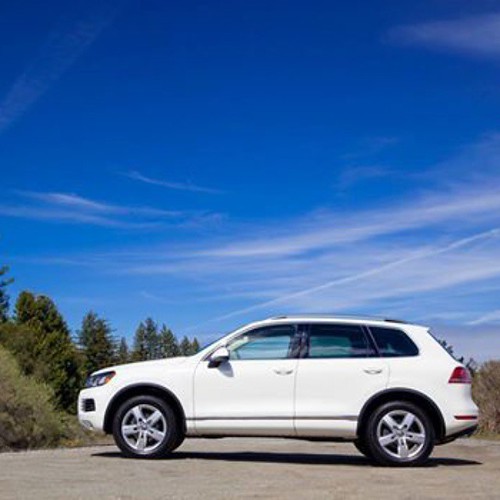
7. **Volkswagen’s Expanding EV Offerings: Seizing the Moment of Increased Sales**
The broader “EV buying spree” that took place in July, driven largely by the impending tax credit expiration, had a profound impact across various manufacturers. Stephanie Valdez Streaty noted that “Volkswagen was up hugely,” a clear indicator of the brand’s success in attracting a significant number of electric vehicle buyers during this period of heightened consumer activity.
This surge in sales for Volkswagen’s electric offerings demonstrates that when the right combination of market conditions and incentives aligns, consumers are eager to embrace their EVs. While the specific models aren’t detailed in the context, this “huge” increase suggests that Volkswagen’s electric lineup resonated well with a large segment of the market looking to capitalize on expiring benefits.
For potential buyers, Volkswagen’s recent performance signals a vibrant and competitive EV portfolio. It implies that their electric vehicles are designed to appeal to a wide audience, balancing practicality with modern EV technology. The brand’s ability to achieve such substantial growth in a dynamic market further solidifies its position as a serious contender in the electric revolution.
Therefore, as the market continues to evolve, Volkswagen’s electric vehicles represent a compelling choice for buyers seeking value and proven performance. Despite the general slowdown experienced by some EVs, Volkswagen’s strong sales surge indicates that its models are readily available and actively being purchased, making them a brand to watch for those seeking to make an informed EV purchase. They are not waiting due to lack of interest, but are now part of a more competitive, deal-rich environment.
While the spotlight often shines on specific models garnering widespread attention, a deeper dive into the market reveals broader trends and additional brands where discerning buyers can find substantial advantages. The current landscape is a dynamic tapestry of fluctuating demand, strategic adjustments by manufacturers, and evolving consumer preferences, all contributing to an environment ripe for those who know where to look. Beyond the immediate rush for expiring credits, long-term trends and less obvious opportunities await the informed consumer. This section will peel back the layers to examine the broader currents shaping the EV market and pinpoint more of those electric vehicles that truly are waiting for their perfect match.

8. **BMW’s Luxury EV Surge: Capitalizing on the Pre-Expiration Rush**
The enthusiasm for electric vehicles, particularly in the luxury segment, experienced a notable uplift in the period leading up to the federal tax credit’s expiration. BMW, a marque synonymous with premium performance, notably saw its EV sales climb by an impressive 24% in July compared to June. This surge underscores how top-tier manufacturers successfully leveraged the heightened consumer activity, transforming the market into a veritable goldmine for astute buyers.
Such a substantial increase in sales within a single month for a luxury brand indicates not only strong product appeal but also effective strategic positioning to capture demand. BMW’s ability to boost sales so significantly suggests that its electric offerings resonated powerfully with buyers looking to combine luxury, performance, and the financial benefits available at the time. This placed BMW’s electric lineup firmly within the category of vehicles that, though premium, were actively being sought out due to favorable market conditions.
The sales performance of brands like BMW highlights a crucial aspect of the current EV market: even without being explicitly called a ‘steal’ or having an extended credit, the confluence of brand prestige and temporary incentives created a powerful purchasing impetus. For luxury vehicle enthusiasts, this period offered a unique window to invest in high-end electric mobility, further proving that opportunities abound across the spectrum of the EV market for those who pay close attention to the timing and market signals.
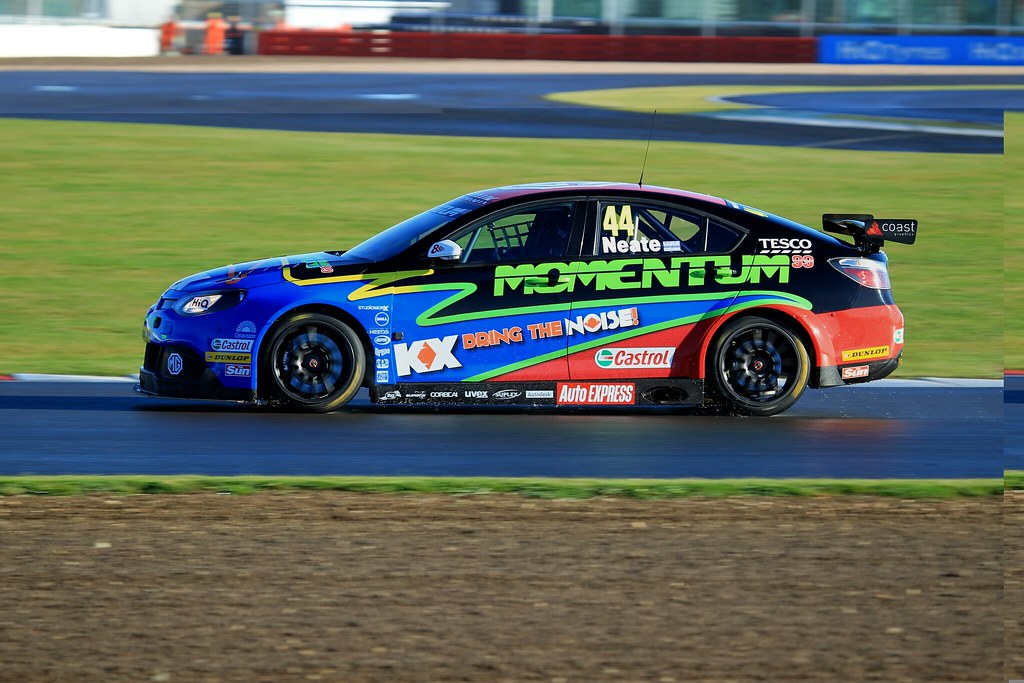
9. **Porsche’s Electric Momentum: High-Performance Meets Opportunity**
Echoing the success seen by other luxury automakers, Porsche also demonstrated considerable electric momentum, recording a 16.5% increase in sales during July. This uptick reinforces the idea that the premium segment of the electric vehicle market was particularly vibrant as the federal tax credit deadline approached. For a brand like Porsche, renowned for its high-performance sports cars and SUVs, any significant sales growth in its EV sector signals strong consumer confidence and product desirability.
Porsche’s electric vehicles, while occupying a niche within the broader market, exemplify how advanced engineering and brand cachet can combine with opportune market conditions to drive sales. The increase suggests that even at higher price points, buyers were motivated to act, likely driven by the perceived value of acquiring a cutting-edge electric Porsche with the added benefit of financial incentives. This speaks to the strategic allure these high-performance EVs held for a specific group of buyers.
This trend also indicates that the luxury EV market is diversifying beyond conventional luxury sedans and SUVs to include high-performance offerings. Porsche’s ability to capture a segment of this pre-expiration buying spree demonstrates that demand exists for premium electric vehicles that offer an exhilarating driving experience alongside sustainable technology. These are not merely cars waiting for any buyer, but for those who recognize the rare convergence of performance, luxury, and favorable market timing.
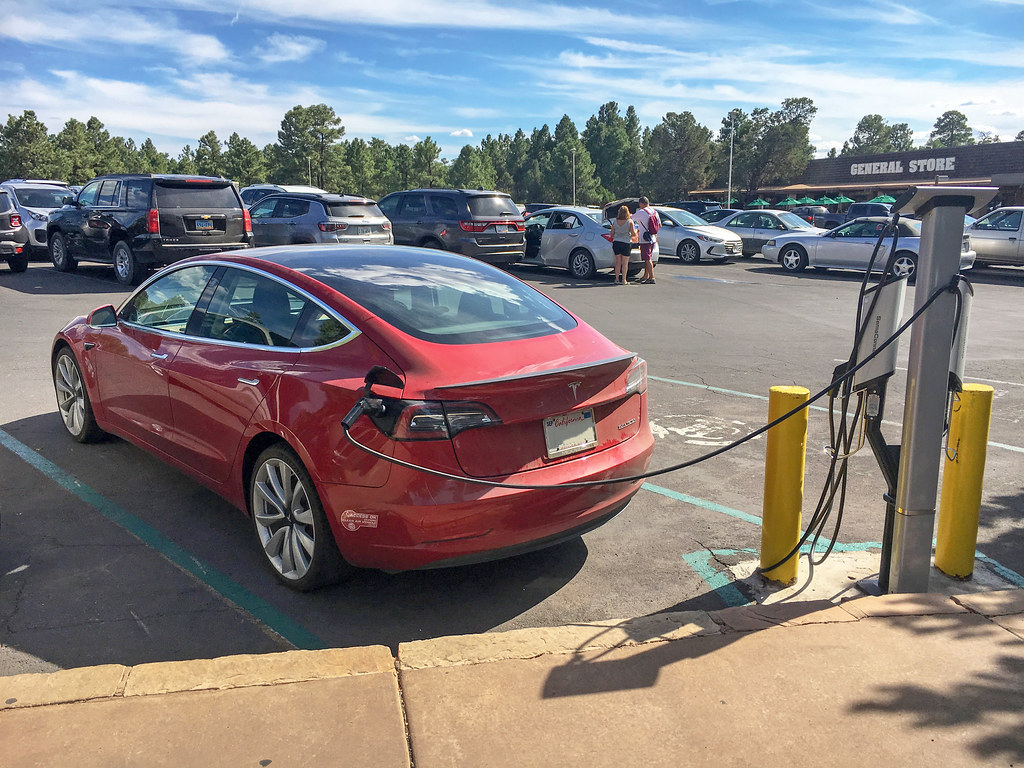
10. **The Broad Market Trend: Why New EVs Languish Longer on Lots**
A critical underlying trend in the current automotive landscape, especially for electric vehicles, is the extended time they spend on dealership lots. According to a recent study by iSeeCars, the average new car sells in 54 days. However, new electric vehicles take significantly longer, averaging 70.6 days on the market. This considerable difference of over two weeks positions new EVs as slower-moving inventory compared to the overall new car market, directly feeding into the notion that they are “waiting forever for the right buyer.”
This longer dwell time is a stark indicator of the supply exceeding the immediate demand, leading to a situation where dealers are more likely to offer aggressive deals and incentives to move these vehicles. For consumers, this translates into greater negotiation power and the potential to secure electric models at prices that would have been unimaginable just a few years ago. It’s a direct consequence of the industry’s rapid production increases outstripping the pace of consumer adoption, a key aspect of the “broader market trends” for EVs.
The comparison with hybrids, which sell even faster at an average of 49.5 days, further emphasizes the unique challenges and opportunities in the EV segment. While hybrids are quickly snapped up, the longer shelf life of pure electric vehicles creates a window of opportunity for buyers who are patient and well-informed. This trend is not a sign of failure but rather an evolving market dynamic that empowers the buyer to take advantage of available inventory and leverage favorable pricing, making it an ideal time to explore models that have been patiently awaiting their owners.
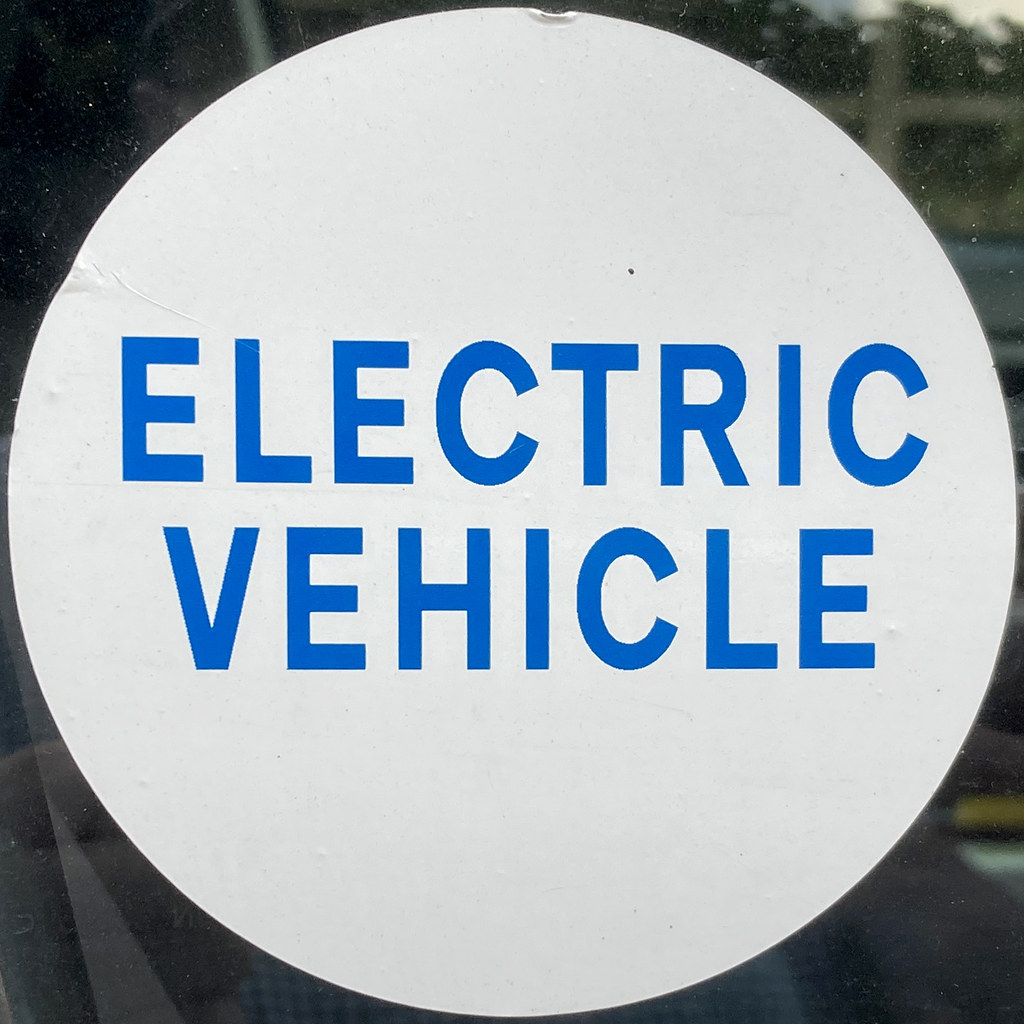
11. **The Enduring Power of Leasing: A Strategic Financial Advantage for EVs**
In a market where affordability remains a significant hurdle for many potential electric vehicle owners, leasing has emerged as a crucial and enduring financial strategy. Marc Winterhoff, interim CEO of Lucid, revealed that the majority of their customers have leased their cars, noting, “It is understandable – we were only eligible for the lease version of the incentives, not the cash version. And people definitely took advantage of it.” This highlights how leasing ingeniously sidesteps certain restrictions of the Inflation Reduction Act of 2022, allowing consumers to effectively secure the full $7,500 tax credit even if the purchased vehicle doesn’t qualify.
Leasing dramatically alters the accessibility equation for high-value electric vehicles, making them financially viable for a broader demographic. Cox Automotive data supports this, showing that 57% of EVs were leased in May, a stark contrast to the 22% for the overall industry. This significant disparity underscores the strategic advantage leasing offers in the EV space, serving as a powerful mechanism to drive adoption by mitigating the substantial upfront investment often associated with electric cars.
For those considering an EV, particularly in the luxury segment where upfront costs are higher, exploring lease options is a practical, value-conscious approach. It’s a clear strategic reason behind the current positioning of many electric vehicles in the market, allowing automakers to move inventory and consumers to experience cutting-edge technology without the full financial commitment of ownership. Thus, leasing ensures that a wide array of electric vehicles, from mainstream to high-end, continue to find eager drivers, preventing them from ‘waiting forever’ on dealer lots.
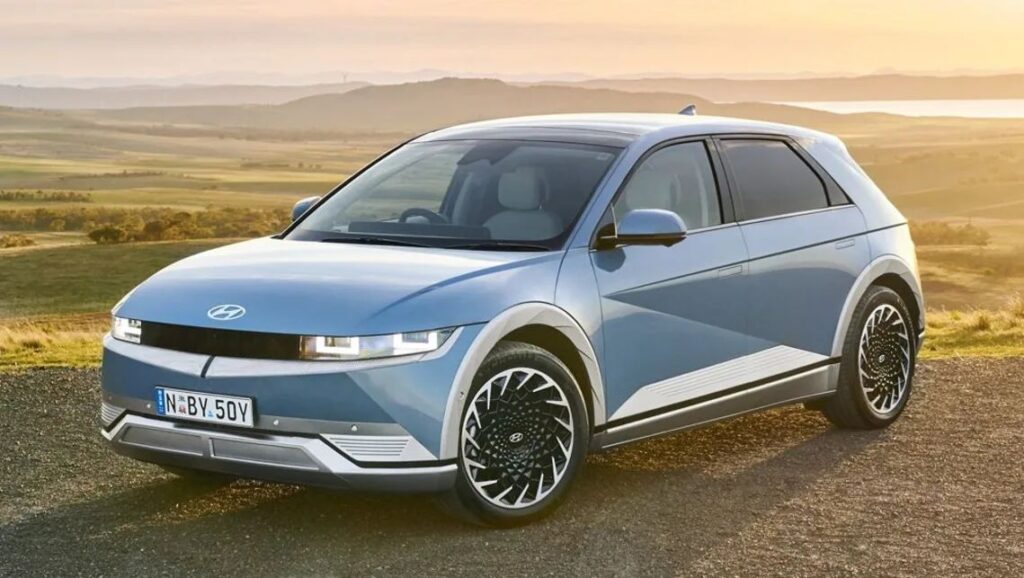
12. **The Post-Expiration Landscape: State Rebates and Lingering Affordability Challenges**
While the federal tax credit’s expiration on September 30 created a significant buying surge, industry experts anticipate that the market will continue to evolve, with state rebates stepping in to partially fill the void. Stephanie Valdez Streaty and Robby Degraff both agree that “EV purchases will continue past Sept. 30, since consumers can still take advantage of state rebates.” This points to a decentralized, yet crucial, ongoing incentive structure that will continue to influence purchasing decisions, offering a different layer of “significant advantages” for informed consumers.
However, the repeal of the federal tax credit is widely acknowledged to be “consequential,” effectively raising the cost of EVs and making them “less affordable to many interested shoppers,” as noted by AutoPacific’s survey. This emphasizes that while incentives like state rebates are helpful, the core issue of affordability for electric vehicles remains a pressing concern for a substantial portion of the market. Robby Degraff starkly observes, “The options are relatively thin for affordable EVs. Affordability is still an issue and will be for the next few years.”
This dual reality—the continuation of state-level incentives coupled with persistent affordability challenges—defines the post-federal credit market. Buyers must now be even more diligent in researching local and state programs to maximize their savings. For automakers, the imperative shifts to introducing more competitively priced electric models to truly broaden the appeal of EVs. This ensures that while some electric vehicles may continue to ‘wait forever’ due to price, those who meticulously explore all available rebates will find opportunities to make the switch more financially palatable.

13. **Tesla’s Enduring Presence in the Used EV Market: A Beacon of Resale Value**
While this article primarily focuses on new vehicle opportunities, understanding the broader market for electric vehicles necessitates acknowledging the strong performance of brands like Tesla in the used car segment. According to iSeeCars, Tesla stands out as one of the “fastest-selling used car brands.” This remarkable statistic highlights a crucial aspect of the electric vehicle ecosystem: the enduring demand and strong resale value of certain prominent EV models, even after their initial sale.
Tesla’s position as a fastest-selling used brand provides a compelling counterpoint to the overall trend of new EVs languishing on lots for longer periods. It suggests that while some new EVs might need extra incentives to move, established brands with strong reputations for technology and performance, like Tesla, maintain their allure in the secondary market. This is a significant consideration for new buyers, as good resale value contributes to the overall total cost of ownership.
The strength of Tesla in the used market indicates that even if a new EV purchase doesn’t come with a massive ‘deal’ in terms of immediate discounts, the long-term value retention can still make it a smart investment. For consumers looking for an EV that offers both cutting-edge technology and a reliable return, considering brands with proven used-market performance like Tesla offers a different, yet equally valuable, perspective on finding an electric vehicle that won’t ‘wait forever’ to find its second owner.
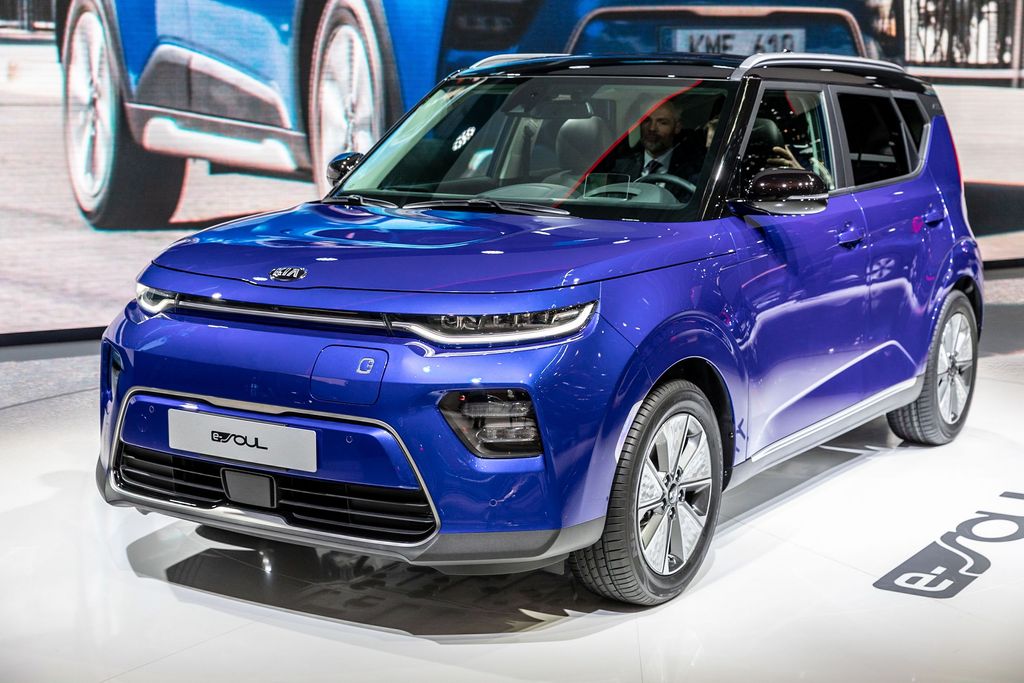
14. **The Slowest Sellers: Uncovering Hidden Opportunities Among Languishing Luxury and Trucks**
Beyond the models actively pushing deals, the current market dynamics reveal another category of electric vehicles that are truly “waiting forever for the right buyer”: those from brands identified as the slowest sellers. According to iSeeCars, Ram, Audi, Buick, Infiniti, and Lincoln are among the slowest-selling new vehicle brands, averaging between 69 and 83 days on the market. These luxury and truck-focused brands, by definition, represent vehicles that are ripe for significant price adjustments and incentives, making them potential ‘steals’ for the astute consumer.
The presence of luxury automakers among the slowest sellers is particularly telling. While their new, high-end models might be attractive, the market’s increasing price sensitivity means even affluent buyers are looking for value. This extended time on lots for luxury EVs from brands like Audi, Infiniti, and Lincoln indicates that dealers are likely under pressure to move inventory, translating into favorable negotiation opportunities for buyers seeking premium electric experiences at potentially reduced prices or with enhanced incentives.
Moreover, the fact that Ram and Ford are showing up near the bottom of the rankings suggests a slowdown in large truck sales, a category that will increasingly include electric variants. This signals a broader shift in consumer demand and offers a unique opening for those interested in electric trucks or luxury EVs to find models that are perhaps not advertised as ‘deals’ but are, in essence, becoming so due to their longer market tenure. For patient and informed buyers, these slower-selling segments represent unexplored territory for uncovering substantial value.
In this ever-evolving electric vehicle market, the message for consumers is clear: opportunities abound for those willing to do their homework. From aggressive lease deals and manufacturer-extended tax credits to the strategic advantages presented by leasing and the potential for deep discounts on slower-moving inventory, the landscape is teeming with options. Whether you’re seeking an affordable entry into EV ownership or a luxurious electric upgrade, the right vehicle, at the right price, is out there, patiently waiting for a savvy buyer like you to seize the moment.

